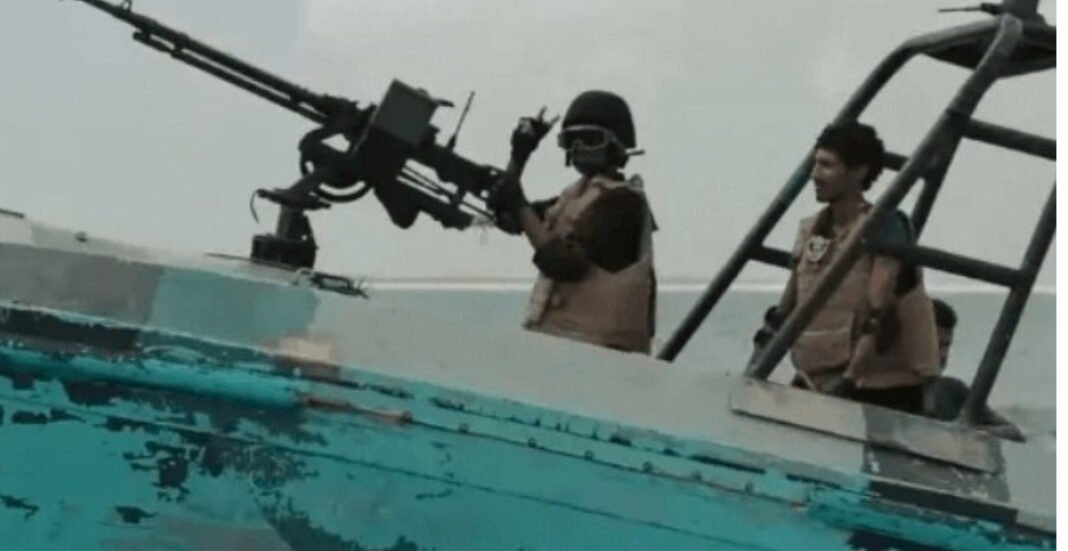By Horn Africa News
Mogadishu — Yemeni coast guard units have intercepted a Somalia-flagged livestock vessel originating from the Port of Bosaso in Puntland, raising alarm over escalating maritime security challenges in the Red Sea region. The vessel, named Merinos Livestock, was carrying an estimated 2,200 tons of live animals and was en route to the Saudi port of Jeddah when it was stopped on July 24, 2025, near Yemen’s territorial waters.
According to regional maritime officials, the interception took place in waters near the Hanish Islands, approximately 30 nautical miles off the Yemeni coast and close to the strategic Red Sea port city of Mocha. The region has been the site of repeated maritime incidents in recent months, with growing fears of Houthi attacks on commercial vessels traversing key shipping lanes.
While Yemeni authorities have not provided a detailed explanation for the interception, sources familiar with the incident say the vessel drew suspicion shortly after leaving Bosaso when it allegedly disabled its Automatic Identification System (AIS) — a mandatory maritime tracking device that helps monitor vessel movement and ensures transparency in shipping operations.
Disabling AIS is widely viewed as a red flag in global maritime security circles, as it is a tactic often associated with smuggling operations, illegal trade, or attempts to avoid detection in conflict zones.
Locals on the Yemeni coast reportedly alerted authorities after noticing the vessel operating unusually close to sensitive coastal zones known to be under surveillance or occasionally targeted by Houthi forces. These coastal waters have become flashpoints amid the ongoing civil war in Yemen and increasing instability across the Red Sea corridor.
According to eyewitness reports and maritime tracking data, the Merinos Livestock was approached by a Yemeni coast guard patrol vessel — believed to be a traditional wooden dhow retrofitted for military use. A brief exchange of light gunfire is said to have occurred during the initial approach, although no casualties were reported.
The Yemeni authorities then ordered the livestock carrier to halt and redirected it under escort to the Port of Mocha for inspection. The port, located in southwestern Yemen, serves both commercial and military purposes and has been under the control of forces aligned with Yemen’s internationally recognized government.
As of now, there has been no official statement from Yemen’s coast guard or government regarding the nature of the inspection or whether any violations were discovered onboard the vessel. Some unconfirmed reports suggest that the ship was held for several hours before being cleared to resume its voyage to Saudi Arabia.
The UK Maritime Trade Operations (UKMTO), a British naval coordination office that monitors threats to commercial shipping in the region, confirmed the incident and advised vessels transiting the area to exercise heightened caution.
Notably, Houthi rebel forces have not claimed responsibility for or involvement in the interception. However, the incident comes amid heightened tensions in the Red Sea, where the Iran-backed group has previously targeted foreign vessels in retaliation for perceived foreign interference in Yemen’s internal conflict.
The Port of Bosaso is a major export hub for livestock shipments bound for the Middle East, particularly during the Hajj season when demand for sacrificial animals increases. Any disruption to this trade route could have significant economic consequences for Somali exporters and the broader regional livestock economy.
Experts warn that increasing instability in the Red Sea could threaten not only local commerce but also international shipping that relies on this crucial maritime corridor linking Europe, Africa, and Asia.
This latest incident highlights the fragility of maritime security in one of the world’s most geopolitically sensitive waterways, underscoring the urgent need for coordinated international efforts to safeguard civilian shipping from becoming collateral in broader regional conflicts.




